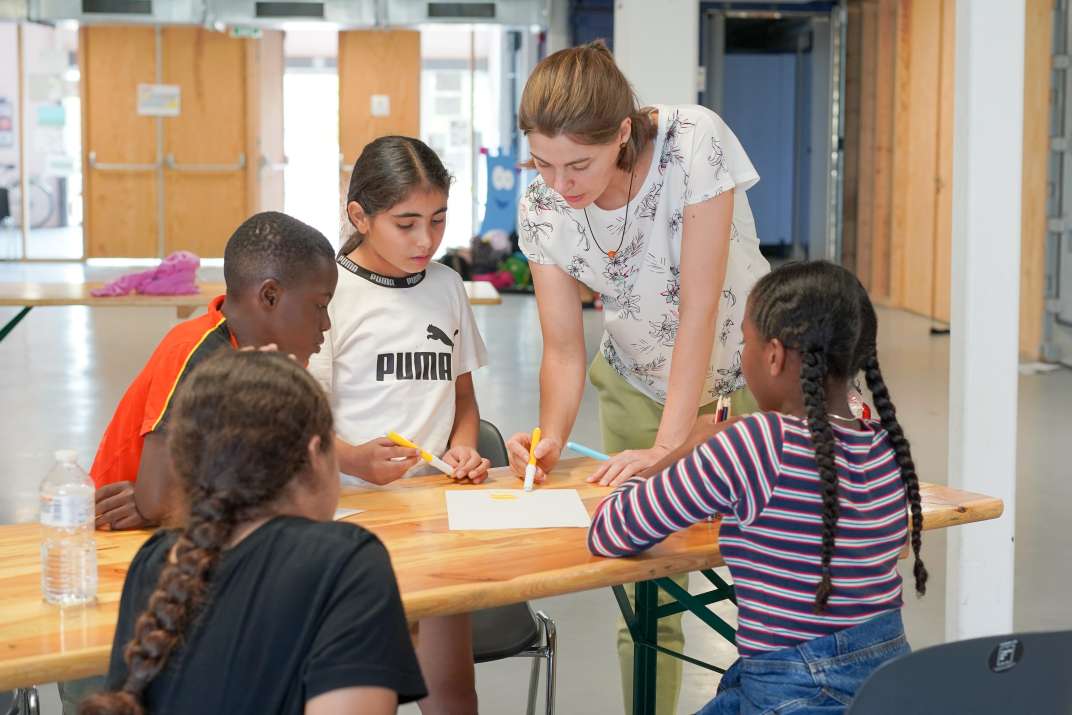“Our goal is to facilitate access to the digital world,” begins Dimitri Verboomen, director of Libraries Without Borders (original name: Bibliothèques sans frontières). “This is essential because we live in a digital age. Access to this world means countless new opportunities. But for those who are excluded, the possibilities are significantly reduced. Studies by the King Baudouin Foundation show that this form of inequality affects about 40 percent of our compatriots today – about 4 million people.”
Scope of training and courses
To achieve this objective, the organisation, which has existed since 2017, has established several initiatives to train and support citizens of all ages with limited digital background towards digital autonomy and to introduce them to the risks and dangers of the digital world. Dimitri explains: “One of those initiatives, ‘Cyber Heroes,’ is an educational programme that teaches children to navigate the internet safely. We organise animations and trainings in and out of school for this. We try to approach cyber security from different angles, covering everything from phishing to preventive safety reflexes. We offer children, teachers and parents a set of activities to guide them through the safety challenges associated with internet use and digital citizenship.”
“Since our launch, we have reached about 40,000 children and young people. Additionally, we train teachers in both Flanders and Wallonia. That group has since grown to just under 2,000. We are now increasingly focusing our activities on the out-of-school lives of young people and their parents, as the digital world plays a decisive role there as well,” he explains.
On another spectrum, BSF works with adults to improve their digital skills and confidence in using new technologies. Through local partnerships, the association organizes training and develops a community of Digital helpers. Called Digital Buddies, the volunteers can help citizens in need directly at their homes or during support sessions. “BSF helps create social links between communities and generations and therefore combat isolation and provide an immediate response to the participants who are usually in desperate need of help”, he continues.
Increasing awareness and concern
In recent years, much has changed for the better, including the general level of awareness around the dangers of the online world. “Especially in Wallonia, which initially lagged behind Flanders in this regard, there has been a clear catching-up movement,” says Dimitri. “With the increasing awareness, concern naturally rises as well, bringing us increasingly into the realm of online well-being. It’s obviously a very pertinent issue.”
“Moreover, and perhaps even more importantly, we have noticed a significant gap among young people between what they know and what they do regarding online safety. For instance, they know it is important to use a strong password, but not all of them actually do it. The fact that surveys show that up to 25 percent of young people have fallen victim to hacking proves this.”
The increased awareness also has a financial impact for the organisation. “We depend on various funding sources, ranging from public funds to private foundations, which make up the majority. Previously, we were almost exclusively funded by channels that did not publicly advertise their support, but this is changing. More and more funders see the value in publicly supporting efforts to enhance digital security and bridge the digital divide. This shows how the perception of this issue has changed.”
Growth is not the (ultimate) goal
Considering these evolutions, Bibliothèques sans Frontières has decided to formally join the Cyber Security Coalition later this year. “We firmly endorse the central objective of this umbrella organisation and believe that membership can add significant value for us, particularly through the tools and shared expertise,” Dimitri continues.
In the coming years, Bibliothèques sans Frontières hopes the positive trends will continue, which will result in inevitable growth. However, that is not what it is working so hard to achieve. “The ultimate goal of our organisation is to disappear. That would mean the societal need we are addressing has been fulfilled. As long as this is not the case – and we are certainly talking about the long term – we will continue to strive,” Dimitri concludes with a smile.








